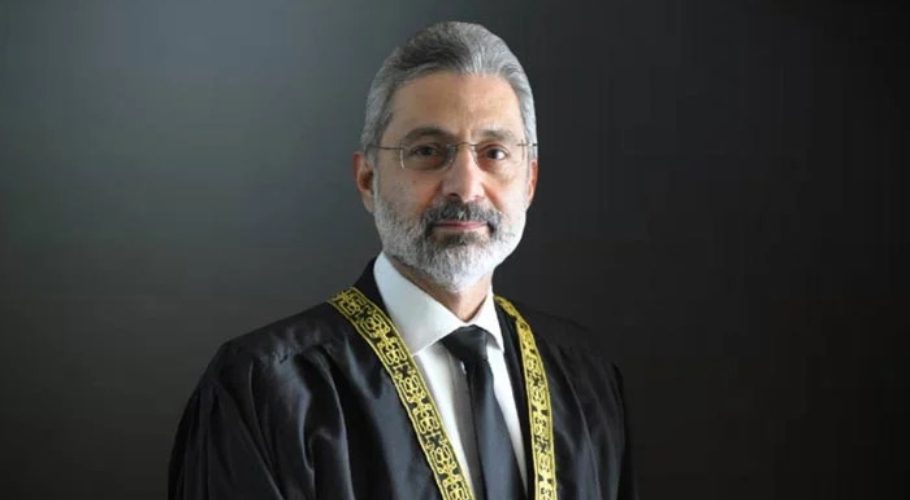Chief Justice of Pakistan Qazi Faez Isa criticized the presidential ordinance on Thursday, labeling it as a slight to the parliament.
During the hearing of a plea by the Election Commission of Pakistan challenging the Lahore High Court’s formation of election tribunals, Justice Isa voiced his concerns over the ordinance, asserting, “Presidential ordinance is an insult to the parliament when it has already made a law on an issue.”
The case is being adjudicated by a two-member bench comprising Chief Justice Isa and Justice Naeem Akhtar Afghan. The ECP had approached the Supreme Court under Article 185(3) of the Constitution against the LHC’s decision on May 29, which established eight election tribunals.
The LHC’s ruling stipulated that Justice Shahid Karim, Justice Ch Muhammad Iqbal, Justice Anwaar Hussain, and Justice Sultan Tanvir Ahmad would preside over election petitions at the principal seat in Lahore. Justice Asim Hafeez would handle petitions at the Bahawalpur bench, while Justice Sardar Muhammad Sarfraz Dogar and Justice Raheel Kamran would manage petitions at the Multan bench.
Justice Mirza Viqas Rauf was designated for petitions at the Rawalpindi bench. This decision followed petitions by Rao Hashim Omar Khan and others, prompting the appointment of six additional judges by the ECP, nominated by the LHC chief justice, as election tribunals.
The ECP, in its appeal to the SC, sought leave to challenge the LHC’s judgment, arguing that under Article 219 read with Article 222(b) of the Constitution, the authority to appoint election tribunals rested with the electoral body.
The ECP contended that Section 140(3) of the Elections Act 2017 required consultation with the respective high court’s chief justice only for appointing sitting high court judges as election tribunals, not for assigning territorial jurisdiction, which was solely within the purview of the ECP as per Sections 140(1) and 151 of the Act.
The case highlights the ongoing legal battle over the authority to appoint and allocate jurisdiction to election tribunals between the ECP and the judiciary.










